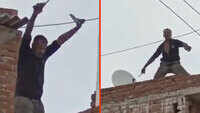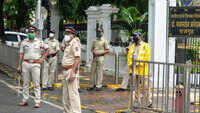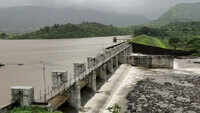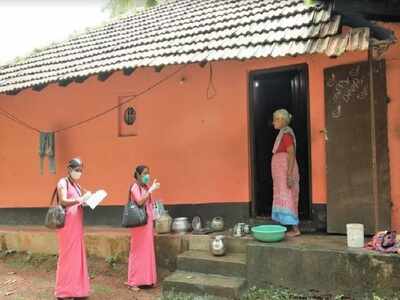
MANGALURU: “Jwara, kemmu ideya? Mask haakikolli, sanitiser agaga balasi, samajika antara paalisi (Do you have fever or cough? Please wear a mask, use sanitiser regularly and maintain social distance).” This statement is how ASHA workers greet people when they visit households in the course of their duty on the Covid frontlines. It is no stretch to say that they are putting their well-being and safety on the line to ensure that the public remain healthy.
Furthermore, their selfless service during the crisis has earned the ASHA workers praise from the Union health ministry. Unfortunately, there are a few elements in our society who appear not to appreciate the sacrifices that the ASHA workers have made. ASHA workers have been the unfortunate target of these hostile elements, who have thoughtlessly assaulted and misbehaved with the Covid warriors.
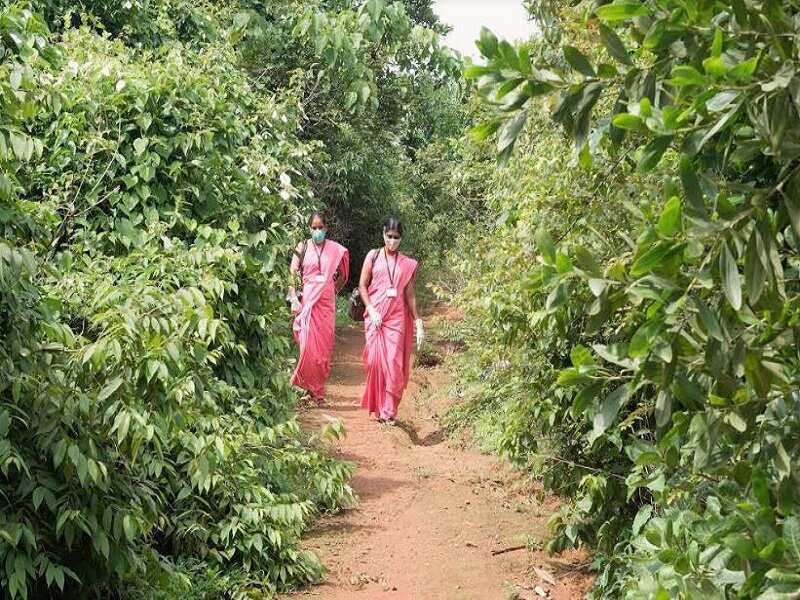
In Bengaluru and Mandya districts, there have been incidents of ASHA workers having been assaulted physically, while in Bantwal in Dakshina Kannada, a worker complained of having been misbehaved with.
In addition to patience and boundless stamina, ASHA workers in coastal districts need to boast another skill: linguistic diversity. In order to connect with the locals, ASHA workers prefer to speak in their mother tongue, which could anyone of these: Tulu, Konkani, Beary, Kannada and to some degree, Malayalam.
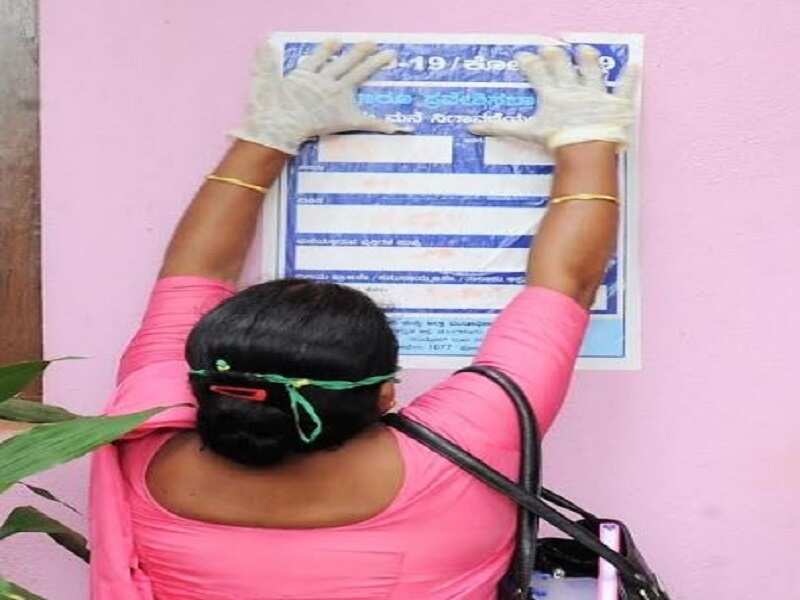
ASHA workers are generally asked to cover 30 households each day. Mamatha, who has been an ASHA worker for the past ten years, said that her day commenced at 10am. The onerous nature of her duties and the hectic schedule they needed to keep up are things she shrugs off, pointing out that she is only too pleased to be serving the nation in its hour of need. “Given that many people are returning home from abroad, it is important to alert the government, and make sure they stay quarantined at home,” she added.
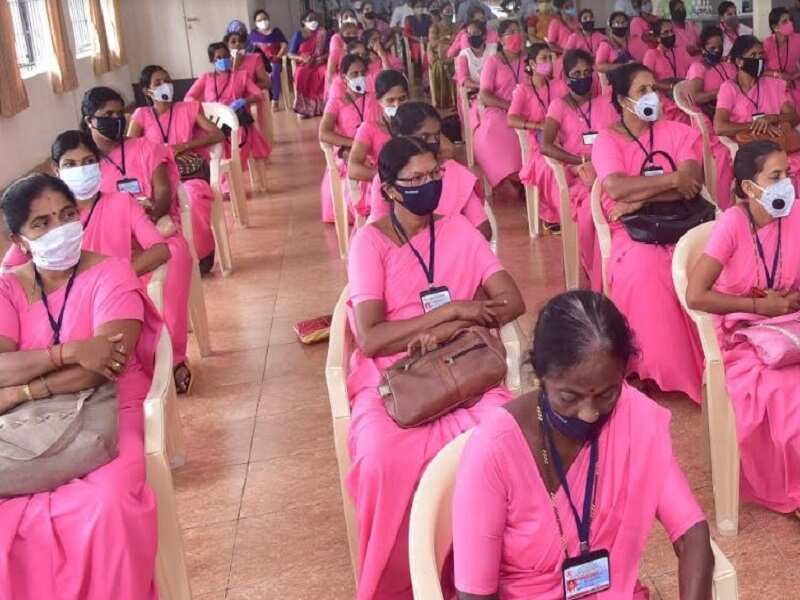
Akshaya, another ASHA worker, said that her duty kept her mostly in the rural pockets, where each house was quite distant from the other, which meant that she had to do a lot of walking. “It is difficult to walk when it rains owing to overflowing drains and rivulets,” she said.
Furthermore, their selfless service during the crisis has earned the ASHA workers praise from the Union health ministry. Unfortunately, there are a few elements in our society who appear not to appreciate the sacrifices that the ASHA workers have made. ASHA workers have been the unfortunate target of these hostile elements, who have thoughtlessly assaulted and misbehaved with the Covid warriors.

In Bengaluru and Mandya districts, there have been incidents of ASHA workers having been assaulted physically, while in Bantwal in Dakshina Kannada, a worker complained of having been misbehaved with.
In addition to patience and boundless stamina, ASHA workers in coastal districts need to boast another skill: linguistic diversity. In order to connect with the locals, ASHA workers prefer to speak in their mother tongue, which could anyone of these: Tulu, Konkani, Beary, Kannada and to some degree, Malayalam.

ASHA workers are generally asked to cover 30 households each day. Mamatha, who has been an ASHA worker for the past ten years, said that her day commenced at 10am. The onerous nature of her duties and the hectic schedule they needed to keep up are things she shrugs off, pointing out that she is only too pleased to be serving the nation in its hour of need. “Given that many people are returning home from abroad, it is important to alert the government, and make sure they stay quarantined at home,” she added.

Akshaya, another ASHA worker, said that her duty kept her mostly in the rural pockets, where each house was quite distant from the other, which meant that she had to do a lot of walking. “It is difficult to walk when it rains owing to overflowing drains and rivulets,” she said.
Quick Links
Kerala Coronavirus Helpline NumberHaryana Coronavirus Helpline NumberUP Coronavirus Helpline NumberBareilly NewsBhopal NewsCoronavirus in DelhiCoronavirus in HyderabadCoronavirus in IndiaCoronavirus symptomsCoronavirusRajasthan Coronavirus Helpline NumberAditya ThackerayShiv SenaFire in MumbaiAP Coronavirus Helpline NumberArvind KejriwalJammu Kashmir Coronavirus Helpline NumberSrinagar encounter
Get the app

